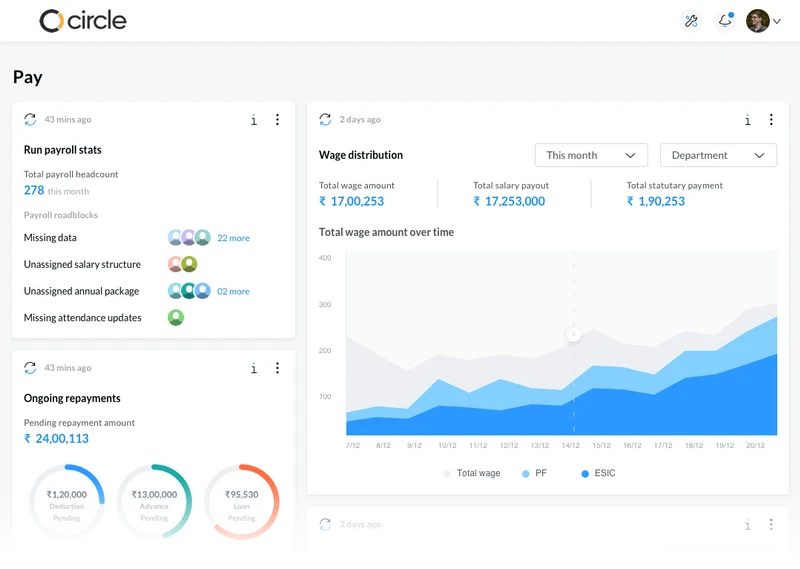Losing a loved one has far-reaching ramifications in difficult times, rendering grief and mental health unavoidable. Additionally, several activities demand an employee’s time and attention, such as notification of family, service arrangements, etc. Bereavement leave is intended to provide employees time away from work to focus on these issues as well as their sorrow. Many employers, although not all, provide a fixed amount of paid time off to employees having lost a loved one. Bereavement means a state of sadness and mourning the death of a loved one, relative or a friend.
If your company doesn’t already have a formal bereavement policy, it is high time to consider implementing one. However, before beginning to write down the policies, it is important to comprehend what bereavement leave truly means, the trends influencing legislation and the prerequisites.
What Is Bereavement Leave?
Bereavement leave is an interim time-off granted to an employee following the loss of a relative or friend. Bereavement leave is granted expressly when an employee experiences the death of a loved one, such as a spouse, child, or another family member. This allows employees on bereavement leave to have time to grieve their loss. Additionally, it gives the employee sufficient time to plan and attend events like funerals, memorial services, and burial services.
Bereavement policy is not common in most organisations as a part of their policy document or company culture. Instead, these organisations offer temporary leave to the employee out of empathy, which can be construed as bereavement leave. An organised policy with rules outlining the advantages an employee is entitled to might reassure staff members and supervisors about what to expect from organisations in trying times.
Procedures Involved In Bereavement Leave
The employee must inform the reporting manager as soon as possible when an employee needs time off due to losing a close relative. However, in most cases where there are no standard policies, bereavement leaves employee benefits are not considered if an employee departs early on the day they learn of the death of their loved ones.
An employee may utilize any available vacation time for additional approved time off as needed, with the appropriate authority’s consent, in addition to bereavement days leave. However, employees being disciplined for poor attendance may be asked to submit proof of their days of bereavement leave. Bereavement pay is computed using the hourly rate that was in effect during the absence time. It excludes additional income such as commissions, bonuses, overtime, or shift differentials.
Standard Schedules Followed For Paid Bereavement Leave
In the instance of the death of an employee’s spouse, domestic partner, child, stepchild, parent, stepparent, father-in-law, mother-in-law, son-in-law, daughter-in-law, brother, sister, stepbrother, stepsister, or adult who acted in loco parentis (guardian) to the employee during childhood, the employee is entitled to up to four consecutive days off from regularly scheduled duty with regular pay.
When a relative dies—a brother-in-law, sister-in-law, aunt, uncle, grandparent, grandchild, or grandparent of the employee’s spouse—the employee is entitled to one day off from regular planned work with regular pay.
Employees are granted up to four hours of bereavement days leave to attend the funeral of a fellow regular employee or retiree of the organisation, provided that their absence from work won’t interfere with the business’s regular operations.
Some of the organizations in India like TCS, Accenture, and Infosys offer 1 to 5 days of paid bereavement leaves. Whereas companies like Capgemini offer 10 days of paid bereavement leave. Here, some companies offer leaves only to immediate family members. Check in your organization for the definition of immediate family members. Many organizations consider parents, siblings, spouse, partner and children as the only immediate family member.
The Legality Of Bereavement Leave in India
In India, there is no law which states that the organization need to offer a paid leave to the employees for bereavement period. There’s no mention of bereavement law related details in the labour law.
What is the law on bereavement leave?
Country | Bereavement Leave Laws And Regulations |
Except for Oregon, no state has laws requiring paid bereavement leave. It is up to the corporate policy to define it. For the loss of a close relative, 3 days of mourning leave are often granted. The Family And Medical Leave Act permits up to 12 weeks of unpaid leave for employees who desire it. Employees in Oregon are entitled to two weeks of paid bereavement leave if they work at least 25 hours per week for at least 180 hours per year. | |
Employees are entitled to take as much time as is necessary to handle crises. There are no time restrictions; employers make this call. Employees are not entitled to get paid by their employers. If a dependent dies, an individual has a right to time off. Dependent consists of:
The recent implementation of Jack’s Law permits parents to take two weeks off if their kid passes away or if a baby is stillborn beyond 24 weeks. A worker cannot be fired, selected for redundancy, or subjected to unequal treatment from their employer for taking time off. | |
India | Bereavement leave is not a right recognised by the Indian law. Most employers in India provide 1 to 10 days of paid time-off in the event of a death in the immediate family. Parents, grandparents, siblings, spouses, kids, and in-laws are examples of the immediate family. |
When a parent, spouse, or child passes away, employees are required by law to take one to three days off. In reality, the majority of employees get 3 days off, and the in-laws are also covered by the policy. | |
Paid bereavement leaves of two days are given to employees when a member of their immediate family passes away. The immediate family consists of partners, kids, parents, and siblings. In reality, bereavement leave can last up to five days and even applies to grandparents. | |
Employers are required by law to provide full-time staff with kibiki kyuka (condolence leave). Employees may take up to five days off for a spouse, kid, or parent. Employees are granted three days for grandparents, siblings, or grandkids. | |
Bereavement leave will only get as a right to an employee when the relationship with the deceased, due to which the leave’s length may vary. Employees are given three days off in the event of:
Employees are given five days off following a child’s death. The employee must present supporting documentation, such as a death certificate, for the leave to be approved. | |
Standard paid leave is for two days; however, depending on the employer’s policy and the employee’s situation, this may be increased to four or more days. Only the first two days will probably be compensated. | |
If an employee’s immediate family member passes away, they are allowed to take five days off work as bereavement leave. The leave may be used any time between the death date and six weeks following the funeral or memorial ceremony date. The length of the leave may also be increased by the employer.
Employees are entitled to compensation for the first three days of their leave if they have worked for the business for three months in a row. | |
After completing the period of six months in the company, employees are entitled to 3 days’ leave for the death of the following person:
|
Proof of Death
For any person, the death of their loved one is a painful experience. The request for loss documentation is something that an employer must carefully consider and demand with the utmost consideration. It could be as straightforward as receiving papers from the funeral home or seeing an obituary or death notice online or in a newspaper.
Some people frequently lie about experiencing a death in the family or among friends, which is why corporations find proof essential. However, like other bereavement-related matters, it is up to each organisation to decide whether it needs an employee’s proof of loss. In most cases, a death certificate is sufficient to demonstrate loss. Many funeral houses also offer proof that the employee has lost a loved one.
Wrapping Up
Bereavement leaves and the employer’s support help employees move through their life-changing event and return to work without added strain and stress. However, many employers might not be able to grant an employee indefinite leave, but they can assist as required if the employee is balancing death and employment obligations. The employer can assist with the documentation needed, such as modifications requested by insurers for a significant life event.
Businesses can even ask for ideas from employees on how to develop the policy. When a bereavement policy is in place, the organisation may continue operating while a valued employee is given the time and space required. Having a bereavement policy in place provides guidelines to the overall workforce on what to anticipate in case of a relative’s death and time given by the organisation to an employee for recovery.
FAQs
What is compassionate leave?
Compassionate leave is a leave granted by an organisation for family emergencies of employees like family members’ sickness, death, or urgent personal matters that need employees’ attention.
What family members qualify for bereavement leave?
Immediate family member’s death qualifies for bereavement leave. Immediate family members in general includes parents, siblings, spouse, and children. Check with your organisation/ HR for their definition of immediate family members.
Do you get bereavement leave for grandparents?
Some organization may grant bereavement leaves for grandparents. Check with your organization/ HR for the same. Organizations usually don’t include grandparents as immediate family members.
How long do you get for bereavement leave?
In India, it is generally between 1 to 10 days as per the company’s policy on bereavement leaves.
Is bereavement leave paid?
Yes, in most of the modern organizations, it is paid leave. Check with your organization for the amount of leaves available for bereavement.
Can you take bereavement leave for a pet?
In India, there are no laws provided on bereavement period for employees. Companies can create a separate policy for bereavement leaves after careful consideration based on immediate family member’s demise or their pet’s demise.
Do companies have to pay bereavement leave?
There are no legal recommendations by the Indian labour law to provide paid bereavement leave(s).








